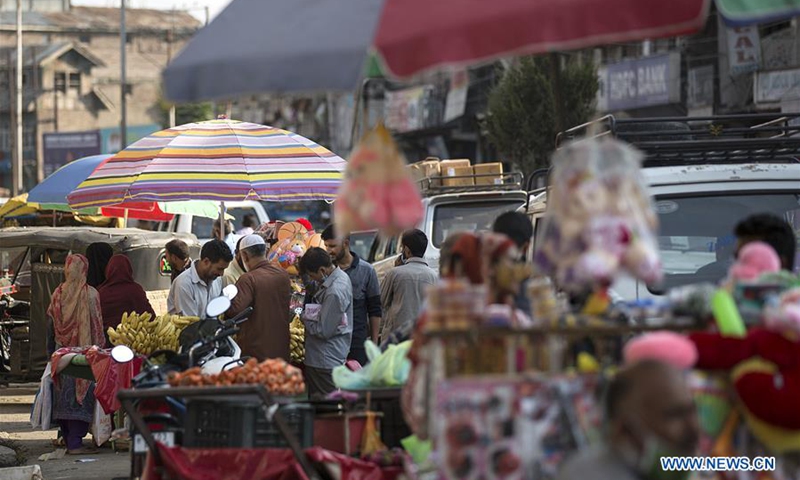Pakistan’s army chief met with senior Saudi Arabian officials in Riyadh on Monday in an effort to ease a row between the two countries over policy toward the disputed region of Kashmir.
The argument, brought on by Pakistani demands for Saudi Arabia to take a firmer line against India’s behavior in Kashmir, has threatened Riyadh’s financial lifeline to Islamabad.
General Qamar Javed Bajwa’s visit was “primarily military-affairs oriented,” the Pakistani army spokesman said in a statement.
But Pakistani military and government officials told Reuters Bajwa would try to calm a situation that if not reversed could badly hurt Pakistan’s central bank foreign reserves.
Bajwa met with Saudi Vice Minister of Defense Khalid bin Salman and the two discussed “bilateral relations, military cooperation, and our common vision for preserving regional security,” bin Salman said on Twitter.
He was also received by the Saudi Chief of General Staff Maj. Gen. Fayyad bin Hammad Al-Ruwaili, the Saudi ministry of defense said in a statement on its website.
“During their meeting, they discussed prospects of military cooperation and ways to boost it as well as other topics of common interest,” the statement said.
A traditional ally, Saudi Arabia gave Pakistan a $3 billion loan and $3.2 billion oil credit facility to help its balance of payments crisis in late 2018.
Irked by Islamabad’s demands for Riyadh to convene a high-level meeting to highlight arch-rival India’s alleged human rights violations in Kashmir, Saudi Arabia has forced Pakistan to pay back $1 billion early and is demanding another $1 billion of the loan.
Saudi Arabia’s government media office did not immediately respond to a Reuters’ request for comments on the issue.
Riyadh has also not responded to Pakistani requests to extend the oil facility, military and finance ministry officials have told Reuters.
“I think our case is to convince them [Saudi] that there’s no foreign policy shift,” a senior Pakistani military official said.
People shop at a market in Anantnag town, about 60 km south of Srinagar city, the summer capital of Indian-controlled Kashmir, Aug. 17, 2020. (Xinhua/Javed Dar)




